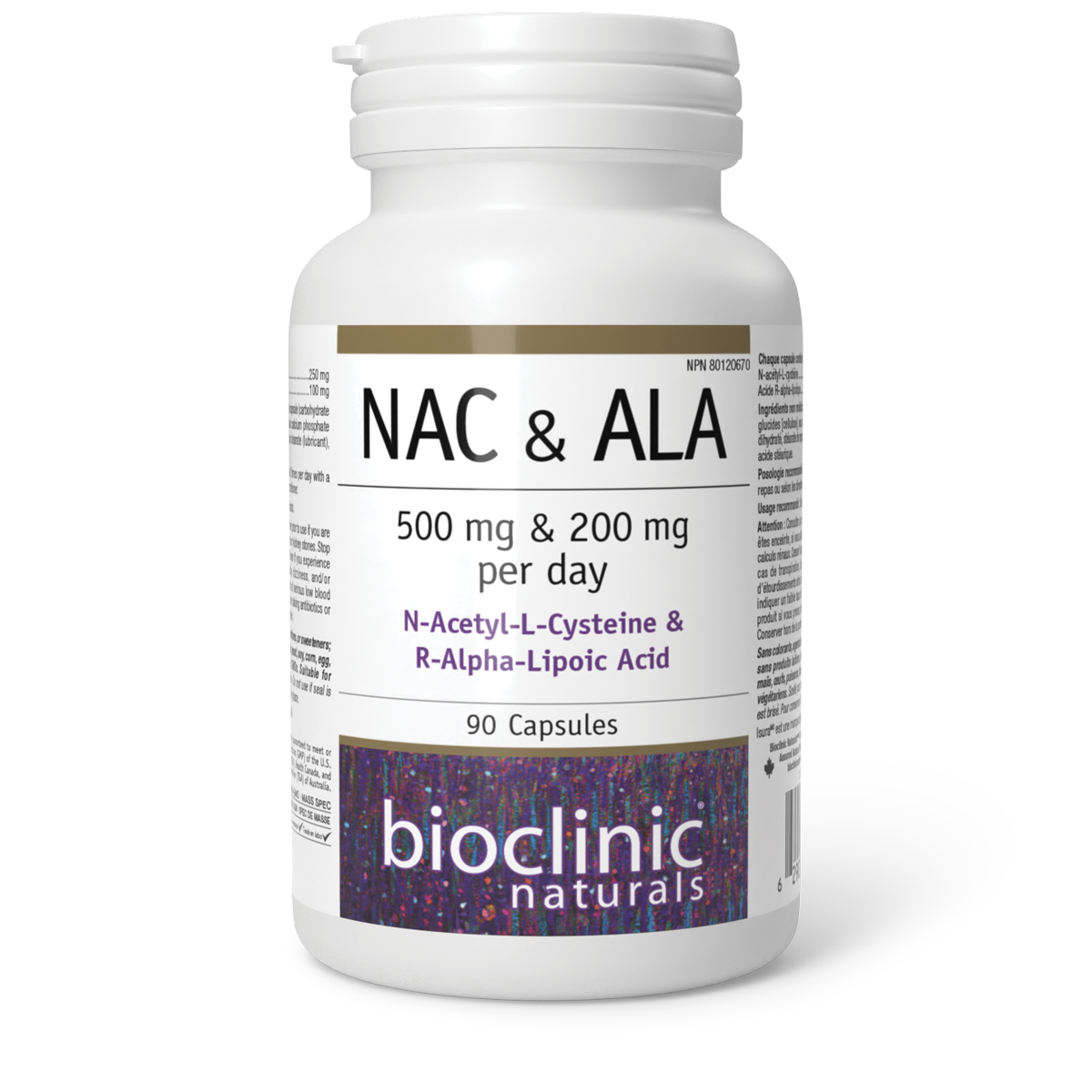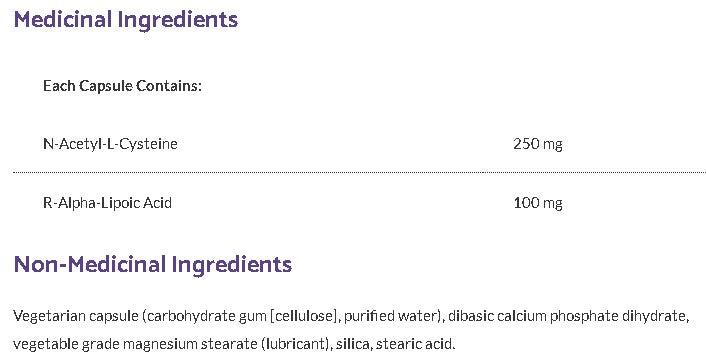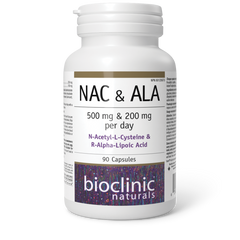



Description
x- Provides clinically relevant doses of N-acetyl-L-cysteine (NAC) and alpha-lipoic acid (ALA)
- NAC and ALA have a direct antioxidant action and improve the synthesis and regeneration of glutathione, the key cellular antioxidant.
- Supports mitochondrial function as well as the upregulation of phase II antioxidant enzymes
- Targets central mediators of inflammation
- Improves endothelial function and supports nitric oxide synthesis
- Reduces damage associated with high blood sugar
- Suitable for vegetarians
NAC and ALA are highly complementary nutrients, essential for cellular function and mitigation of damage associated with hyperglycemia. NAC stimulates the synthesis of glutathione, often depleted in cardiovascular disease and conditions of metabolic and oxidative stress. NAC also has direct antioxidant activity, restores intracellular thiol pools and has an anti-inflammatory effect, mediated by inhibition of nuclear factor kappa. B (NF-κB). Glutathione is necessary for the detoxification of many persistent organic pollutants, compounds known to impair mitochondrial function, adipose tissue metabolism, and pancreatic islet cell function. In addition to glutathione support, NAC enhances antioxidant protection through multiple pathways, including upregulation of nuclear factor (erythroid derivative 2)-like 2 (Nrf2) and phosphoinositide 3-kinase/protein kinase B (PI3K/AKT) activation, suggesting significant potential for attenuation of oxidative stress pathology. Clinical trials have shown that NAC restores intraplatelet glutathione levels in certain populations – a marker of atherothrombotic risk – reduces homocysteine and improves endothelial function in coronary heart disease (at doses of 600 to 1,800 mg/day).
ALA, in turn, recycles antioxidant nutrients such as vitamin C and glutathione, and is a cofactor for several mitochondrial enzymes as well as glutathione reductase. It supports glycemic control and insulin sensitivity in people with inadequate glycemic control, endothelial function in people with deficiency. Glucose tolerance and weight control in obese subjects. It has a well-recognized benefit in attenuating neuronal oxidative damage resulting from hyperglycemia. Clinical trial data showed improvement in several markers of oxidative stress and vascular inflammation. in various populations. Its antioxidant and neuroprotective effects may also provide protection against neurodegeneration and a range of oxidant-associated diseases.
Posologie
xInfos nutritionnelles
x- Choosing a selection results in a full page refresh.

